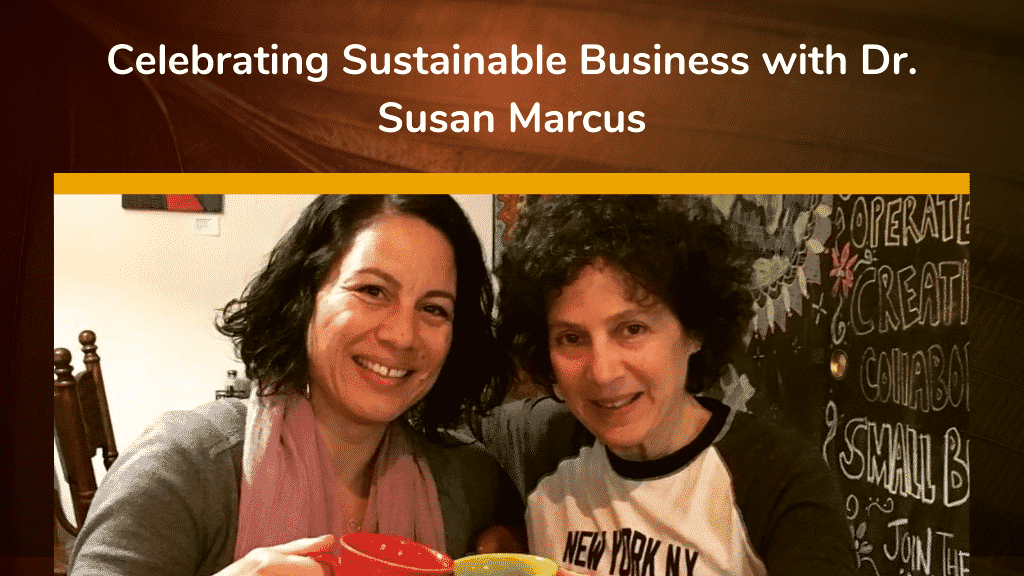
Written by Social Media & PR Specialist Gillian Turner
ACHS Dean of Business Dr. Susan Marcus brings a unique perspective to ACHS, and it’s about time she gets a feature on our blog! Keep reading to learn about her journey, from growing up in a family business to going back to school later in life and ultimately helping ACHS create the only MBA with sustainability and wellness at its core.
Growing up in the family business
As a child, Susan was inspired by the way that her family ran their restaurant supply and equipment business. What she saw in action as she grew up was an awareness that went beyond simply selling things and making a profit.
The family business taught Susan that it’s possible to have a thriving enterprise that is also environmentally and socially responsible. She estimates that her family’s business was one of the first companies to have a line of environmentally friendly cleaning products, in addition to restoring restaurant equipment for resale and reuse, helping keep these bulky items out of the landfill. The firm was also one of the few in the industry to offer a profit-sharing program available to all employees, regardless of where they worked in the organization.
One act that stuck with Susan was seeing her father sponsor a young man in the community to go to college. “Dad didn’t want a lot of attention — he kind of quietly lived these values that demonstrated it wasn’t just about a business enterprise; it was about doing something that made a positive difference,” Susan says.
Susan points out that social and environmentally friendly practices in business are in line with financial performance. “Over time, when you’re doing things that lift the organization towards enacting its values around the environment and the society we’re helping build and sustain, those actions line up with financial performance. This has definitely accelerated over the years as younger generations are more particular about how and where they spend their money,” she says.
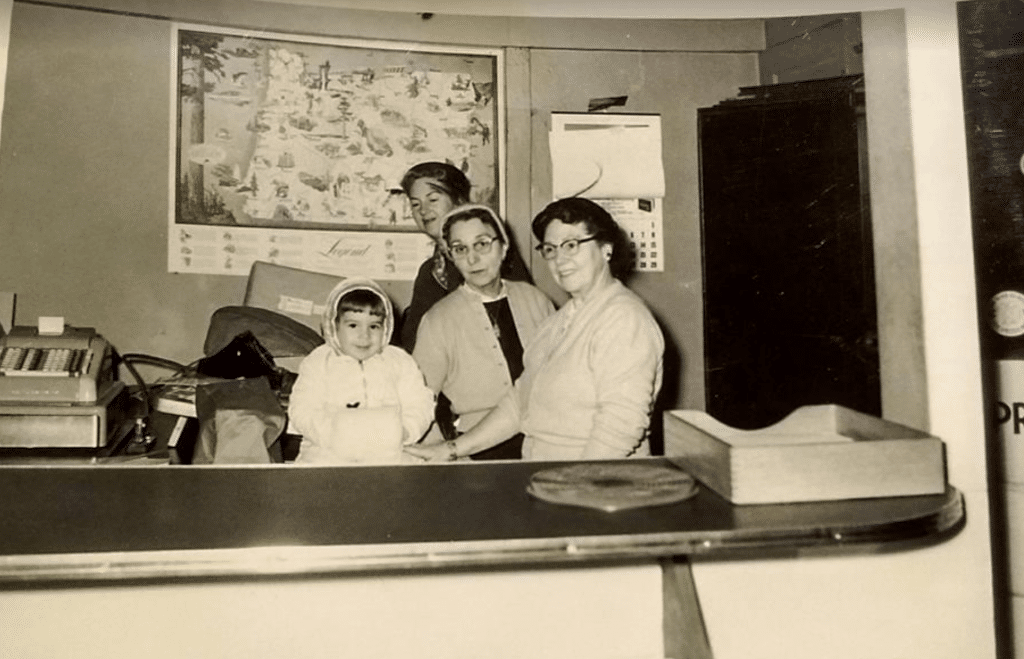
Pictured: Susan Marcus as a child behind the counter of her family’s business
Going back to school later in life
With a family business to run, Susan says that it was assumed she wouldn’t need college. As it happened, Susan left school in the 10th grade and the business changed hands. Armed with a GED credential, Susan eventually found a career in the U.S. Postal Service. “I took the postal exam and got a job in mail processing. By then, I was a young, single parent raising a daughter, and the USPS provided financial stability for our household along with some wonderful career opportunities I never imagined for myself,” Susan says. As her daughter reached college age, Susan decided it was time to break free of what she refers to as the “USPS golden handcuffs” and see what else was out there.
She took the leap and resigned from the Postal Service, soon discovering that without higher education, many doors were closed to her. “The thing that was so frustrating was that I was deemed ineligible to even apply for jobs I knew I could do,” she says. So, while working as a financial project manager in the development of income-restricted housing by day, Susan decided to give school another try and pursue a degree.
She worked with a counselor to map a path to an undergraduate degree and attended graduate school at Portland State University during the same time her daughter was getting her Master’s degree. “Claire was the first in our family to go into higher education; she blazed the trail for me all the way through her doctoral studies. Still today, she inspires me through her student services leadership as a community college executive, and more recently as the mother of my grandson!” Susan says.
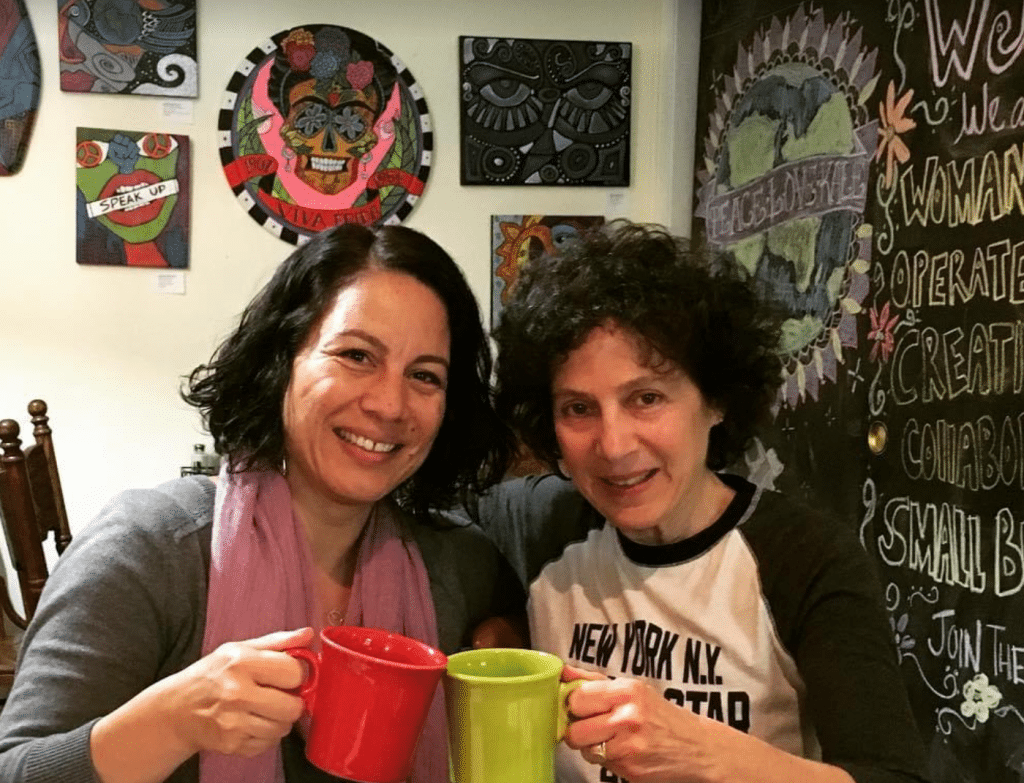
Pictured: Susan Marcus (right) with her daughter Claire
Gaining the confidence to apply for an MBA
Just as Susan was finishing her Master of Science in Education Policy, Foundations, and Administration, a program centered on post-secondary, adult, and continuing education (or as Susan puts it, “how adults learn”) a classmate explained that if she applied for a second degree before her program was complete, she could carry over the electives. With a day job working in finance, an MBA seemed the likely choice.
As a high school dropout, Susan recalls having some doubts: “When you have that kind of journey, you don’t always have the highest level of confidence about your academic abilities.” She had seen MBA students around campus and was intimidated that they always seemed to be working away on their laptops. When she walked by and noticed one day that they were just playing games on the screen, she was less intimidated and decided to apply.
Susan took the Graduate Management Admission Test (GMAT) that was required for admission, got a high score, and entered the MBA program. While in the program, and through the encouragement of several key influencers, Susan began to develop a sense of belonging in a community of learners. “Toward the end of my MBA studies I was given an opportunity to go to the Russian Far East and teach, and luckily for me, mastery of the Russian language was not required! What I discovered was how much I loved the classroom environment and interaction with students,” she says.
Love of teaching and earning a Ph.D.
After teaching in Russia (and despite her husband’s “More school, really…?” Although his support was unwavering, it was a valid question!), Susan determined she needed a Ph.D. in order to pursue teaching opportunities. Portland State University had a doctoral degree in Systems Science and Business Administration that was perfect for her. As Susan puts it, “Systems Science focuses on interconnectedness, which is also the basis for principles of sustainability” which by then had become a term to describe the approach to business Susan saw enacted as a child.
Susan completed her Ph.D. in 2004 and in the passing years, noted that an emphasis on sustainable business had definitely increased. “Not because it’s a fad or trendy — but because it’s financially lucrative,” she says. “It really does make better financial sense to base decisions on sustainable practices. Some use the word ‘stewardship’ which simply means taking care of our resources, in this instance both environmental and human. When viewed pragmatically, it becomes a matter of risk management.”
In her doctoral dissertation, Susan looked at five companies in different sectors and studied how strategic-level decisions were made in organizations that valued social, environmental, and financial sustainability. Her dissertation research showed that it is financially viable to uphold goals in all three categories simultaneously in support of socially, environmentally, and financially sustainable business. “It’s not a layer we add on only during economic boom times, it’s literally what keeps us economically stable,” she says. “That to me was an indisputable data point that said ‘this is absolutely what business needs to be moving toward’. My Ph.D. was another punctuation mark on my educational journey that fostered my commitment to help move the business sector toward practices that are more sustainable.”
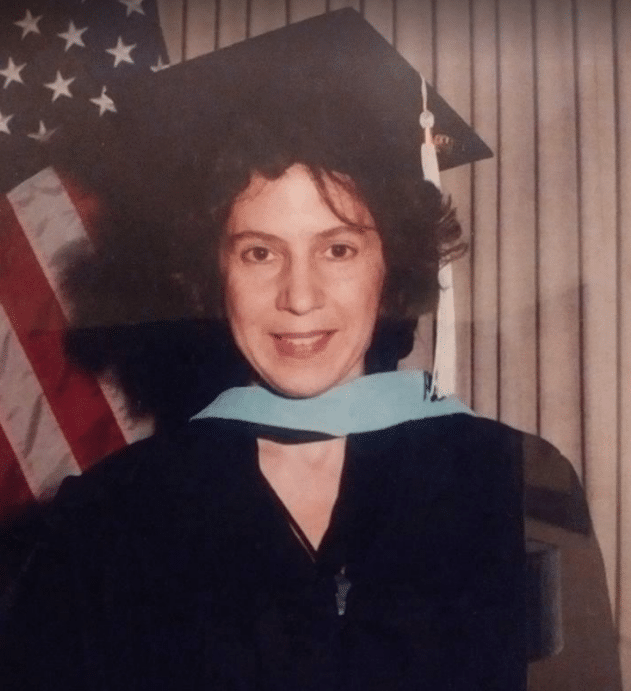
Pictured: Susan Marcus after her first Master’s degree
What makes an MBA program valuable to students?
Before joining ACHS as the Dean of Business, Susan chaired an MBA program overseeing 50 instructors and over 80 courses, and helped develop an MBA in Sustainable Business and an MBA in Healthcare Management. With this background and network of professionals, she was integral to the development of an MBA reflective of our values here at ACHS.
Susan says that her own educational experience showed her the importance of having a curriculum based on real world application. Besides the general benefits that come through networking, learning to speak and present in the language of business, and the development of analytical skills, traditional business education often relies on the use of case studies rather than application in a setting specifically relevant to students. When it came to designing the curriculum for the ACHS MBA, Susan followed this motto: “Keep it real, keep it relevant, and help students create a body of work they can immediately use in their professional journey.”
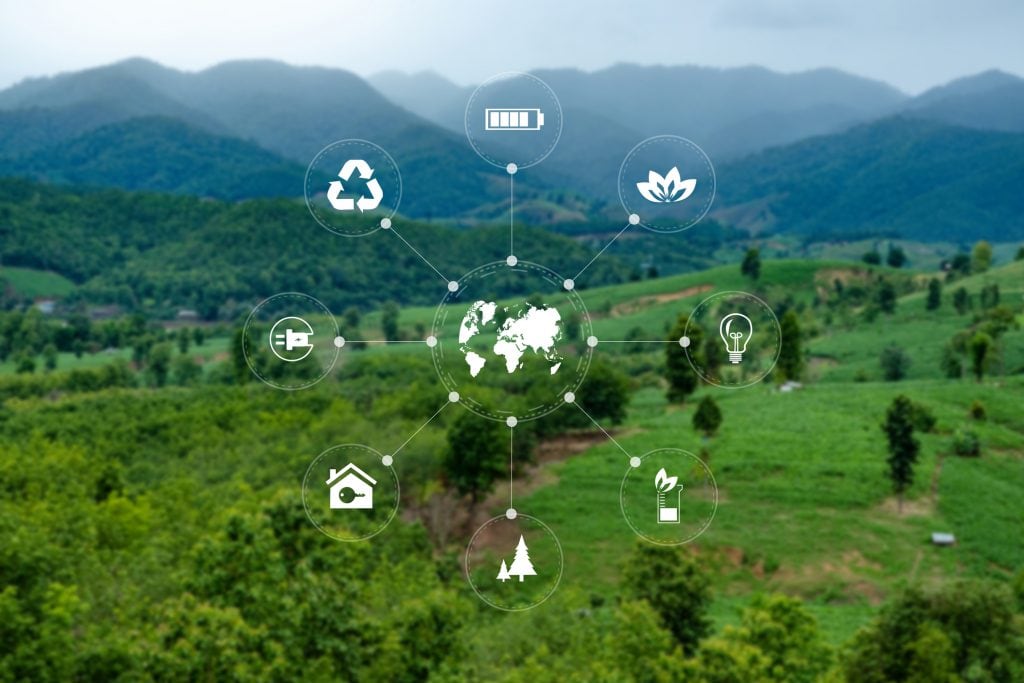
Pictured: Sustainability illustration
Why an MBA with an emphasis on sustainability and wellness?
Many MBA programs exist. What makes this program unique is an explicit focus on sustainability and wellness.
Why is sustainability important as a fundamental aspect of business? Susan explains: “We can have everyone talking about environmental justice and social responsibility, but if we don’t have it woven into how decisions are made in businesses and organizations of all kinds, we are not going to have the kind of broad-based progress needed in the 21st century.”
Susan says that the COVID-19 pandemic has highlighted the need for social sustainability in business. “If we don’t have an ethic related to resilience and risk mitigation in place already, with fully developed contingency plans, we are setting ourselves up for unnecessary exposure. That’s where a student that’s worked through an MBA experience emphasizing social and environmental sustainability will stand apart from graduates of a traditional MBA program.”
Susan explains that while the ACHS MBA contains all of the same content areas as a traditional MBA, the difference is that students view the material through the lens of how decisions will affect people and the environment. “If we don’t incorporate that awareness, we are not doing our part to manage and eliminate risk for the organization, for its people, and for our planet.” That is both our mandate and our challenge as current and future leaders.
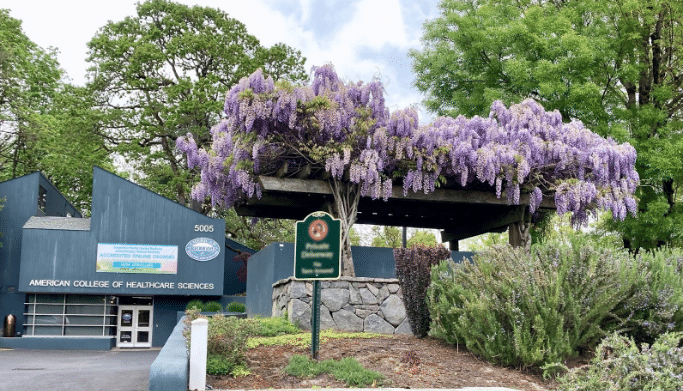
Pictured: ACHS Portland campus
If you have questions about our MBA program or are wondering if an MBA would be right for you, you’re in luck! Next week Susan will begin a series of blog posts that answer all of your questions, such as:
- Why an MBA, online, from ACHS? Does an MBA make sense in my situation?
- What kinds of jobs can I get with an MBA from ACHS?
- Who are the instructors teaching in the ACHS MBA program?
- What is an MBA Capstone and how do I produce one?
About American College of Healthcare Sciences
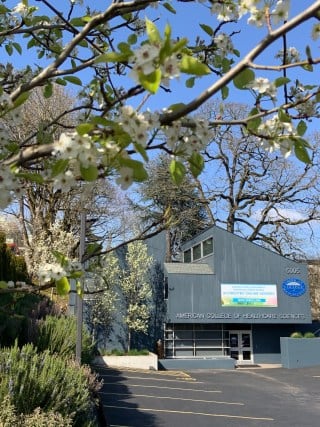
This commitment to our students and graduates reflects in our current survey results that reflect 98% of our students would recommend ACHS to a friend or family member.
We believe education is the most powerful tool for changing an individual and the world around us.
When a person enrolls as ACHS, it is vitally important that they graduate with tools they need to forge their own holistic and sustainable missions, build up their communities confidently and changing the face of healthcare with knowledge.
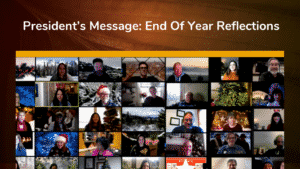 President’s Message: End Of Year Reflectionsby American College of Healthcare Sciences●December 31, 2020
President’s Message: End Of Year Reflectionsby American College of Healthcare Sciences●December 31, 2020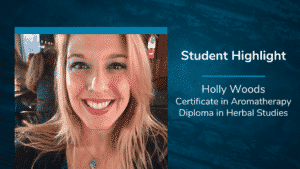 Student Highlight: Wife and Husband Team Start New Businessby American College of Healthcare Sciences●December 22, 2020
Student Highlight: Wife and Husband Team Start New Businessby American College of Healthcare Sciences●December 22, 2020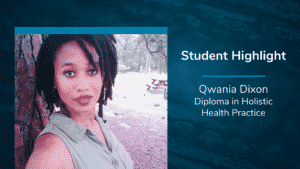 Student Highlight: Holistic Health, Gratitude, and Smoothies |achs.eduby American College of Healthcare Sciences●December 17, 2020
Student Highlight: Holistic Health, Gratitude, and Smoothies |achs.eduby American College of Healthcare Sciences●December 17, 2020 3 Tips For Building Better Habitsby American College of Healthcare Sciences●December 10, 2020
3 Tips For Building Better Habitsby American College of Healthcare Sciences●December 10, 2020
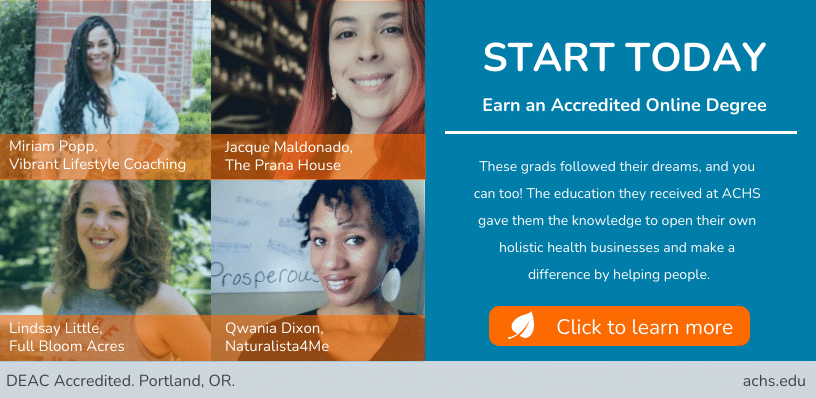
2 Responses
Comments are closed.